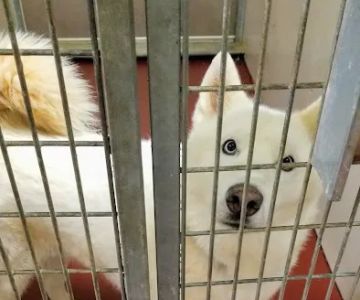Why Keeping Your Pet’s Coat Healthy is Important
As a pet owner, you know that your furry friend's coat is one of their most noticeable features. A shiny, soft, and healthy coat can indicate a pet that is well-cared for, while a dull, dry, or matted coat might suggest issues with their grooming or overall health. The condition of your pet's coat can reveal a lot about their well-being, and it's essential to prioritize their coat care to ensure they look and feel their best.
Throughout my experience as a pet owner, I’ve learned that keeping my pet's coat healthy involves more than just brushing it regularly. It requires a combination of proper grooming, a nutritious diet, and attention to their overall health. In this article, I’ll share some essential tips on how to keep your pet’s coat healthy and shiny, so your furry friend always looks their best.
1. Regular Grooming is Key
One of the most crucial aspects of maintaining a healthy coat is regular grooming. Brushing your pet's fur not only keeps it looking neat but also helps distribute natural oils across their skin and fur. These oils act as a natural moisturizer, keeping the coat shiny and healthy. I’ve noticed that regular brushing also helps reduce shedding, minimizes tangles, and prevents matting, which is especially important for long-haired breeds.
When grooming your pet, be sure to use the appropriate brush for their coat type. For instance, short-haired pets require a bristle brush, while long-haired pets benefit from a slicker brush or a comb. Regular grooming also gives you the opportunity to check for signs of skin issues like fleas, ticks, or dryness. If you're unsure how often to groom your pet, consider visiting a professional groomer or consulting with a veterinarian for guidance specific to your pet’s breed and coat type.

845 W Ridge Rd, Gainesville, GA 30501, USA
See Details2. Diet and Nutrition Play a Big Role in Coat Health
Just like humans, pets need proper nutrition to maintain healthy skin and fur. A balanced diet rich in omega-3 fatty acids, vitamins, and minerals can promote a shiny coat and prevent dryness or dullness. I’ve found that adding a high-quality pet food that includes these nutrients has made a noticeable difference in my pet's coat.
Some foods contain specific ingredients that help improve coat health, such as salmon, flaxseeds, or fish oil. If you’re unsure if your pet’s food is providing the right nutrients, I recommend consulting with a veterinarian. They can recommend supplements or dietary changes that can support a healthy coat and improve skin condition. Additionally, always ensure your pet stays hydrated, as water is vital for skin and coat health.
3. Bathing Your Pet Properly
Bathing your pet too often can strip their skin of essential oils, leading to dryness and irritation. On the other hand, infrequent baths may lead to buildup of dirt and oils that can affect the coat's health. It's important to find a balance. Based on my experience, I typically bathe my pets every 4 to 6 weeks, depending on their activity level and coat condition.
When bathing your pet, use a pet-specific shampoo that is gentle on their skin. Harsh human shampoos can upset their skin's natural pH balance. Additionally, it’s essential to thoroughly rinse out the shampoo to avoid irritation. After a bath, I always make sure to towel dry my pet and, if needed, use a blow dryer on a low setting to ensure their coat stays healthy and fluffy.
4. Protecting Your Pet's Coat from the Elements
The environment can also play a significant role in the health of your pet's coat. Extreme weather conditions, like hot sun or cold winds, can cause damage to your pet’s fur and skin. During the summer, I make sure my pets are protected from the sun, especially for short-haired breeds that are more susceptible to sunburn. You can purchase pet-safe sunscreen to apply to areas like the nose or ears if necessary.
In the winter, cold weather can dry out your pet’s coat and skin, leading to flakes and irritation. Using a doggy sweater or coat during colder months can protect their skin and fur. I’ve found that a little extra care during these seasons can prevent many issues, such as dryness or discomfort from the elements. Also, avoid letting your pet walk on ice or snow for extended periods, as this can damage their coat and paws.
5. Regular Vet Check-ups
Another essential step in keeping your pet’s coat healthy is ensuring that their overall health is in top shape. Regular check-ups with your vet can help identify any underlying health issues that may affect their coat. Conditions like allergies, hormonal imbalances, or infections can lead to hair loss or poor coat condition, and a professional diagnosis can help address these problems early.
For example, my dog had some patches of dry, flaky skin, and after a visit to the vet, we discovered that it was due to an allergy. With the right medication and a modified diet, her coat became healthy again. Regular check-ups can also give you peace of mind knowing that your pet's coat is healthy and that any concerns are addressed promptly.
6. Choose the Right Grooming Products for Your Pet
Choosing the right grooming products can make a huge difference in maintaining your pet's coat health. When shopping for pet grooming products, I always look for those that are formulated for my pet’s specific coat type. For example, shampoos with natural oils or conditioners designed for dry skin can help keep your pet’s coat shiny and moisturized. Additionally, I recommend investing in a good quality brush and comb that suits your pet’s fur type, whether they have short or long hair.
Aside from shampoo and conditioner, I also use pet-safe detanglers and coat sprays to keep their fur smooth and free of mats. A quality detangler spray can help with brushing, especially if your pet has long, thick fur. It’s important to avoid using human products, as they can be too harsh for your pet’s skin.
Keeping your pet’s coat healthy requires a holistic approach that involves proper grooming, nutrition, protection from the elements, and regular vet check-ups. By following these tips, you can ensure that your pet's coat remains shiny, soft, and free of issues, making them look and feel their best. If you're looking for professional advice or grooming services, I highly recommend visiting a trusted veterinary service like Hidden Brook Veterinary for expert guidance tailored to your pet’s needs.










